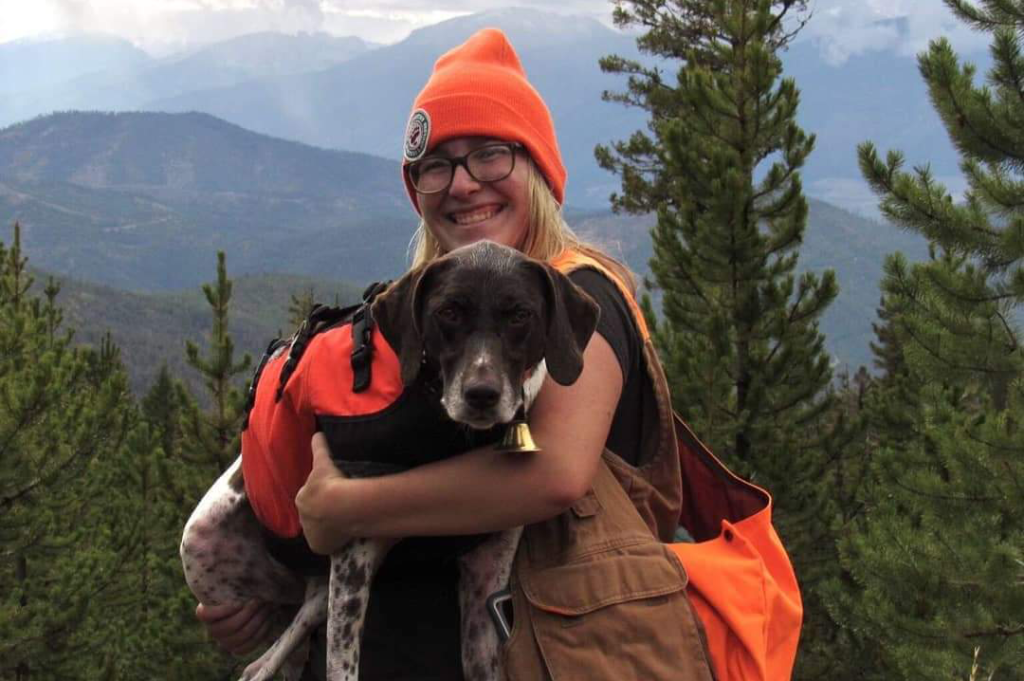
As a part of the education mission at Safari Club International Foundation (SCIF) to ensure the future of wildlife, SCIF is helping young wildlife professionals pursue their dreams of working in the wildlife conservation field. SCIF has been providing scholarships to students in wildlife management at several top university programs for almost 20 years through our SCIF Hunting Heritage Scholarships. These scholarships were established by the Sables to support students majoring in wildlife-related fields. Scholarships are established by SCI members contributing up to a $100,000 endowment at the University or school of the SCI member’s choice. Annual scholarships are then funded by the endowment in perpetuity, with scholars selected by each university according to guidelines agreed to by SCIF and the donors. SCIF’s Scholarship Committee and education staff are responsible for monitoring these awards.
We currently have six endowed scholarships that make up the Sables Hunting Heritage Scholarships:
- SCI Foundation Sables Hunting Heritage Scholarship at Texas A&M- Kingsville
- Elaine & Gus Vogeler Hunting Heritage Scholarship at the University of Idaho
- Joe Leta Hunting Heritage Scholarship at the University of Maine
- CJ McElroy Hunting Heritage Scholarship at West Virginia University
- The Susan and John Monson Hunting Heritage Scholarship at the University of Montana
- Don MacMillan Hunting Heritage Scholarship at Hamline Law School in Minnesota.
Historically, representatives from SCIF visit each university every few years to be updated on current staff, to meet scholars, and to review each program. Like many such events, our meetings this year have been via video conference, but we have met with representatives of the University of Montana and West Virginia University already. Each of these institutions has been awarding annual scholarships of about $4,000 to top wildlife students that are interested in and supportive of hunting as a critical component of conservation. As an example, Madeline Damon is a recent (2020) recipient of the
Susan and John Monson Hunting Heritage Scholarship at the University of Montana. Madeline is a senior in the Wildlife Biology program and provided the following about her path and what she hopes to accomplish with her future graduate work.
“The outdoors has always been a central part of my life and was bound to be a part of my career. I grew up in Wisconsin, where hunting and fishing was a part of our way of life. As a senior in high school, I was a youth delegate for the Wisconsin Conservation Congress, and this was my first-time meeting professionals in the natural resources industry. The conservation congress connected the citizens of Wisconsin to natural resources policy and working directly with citizens to make progress in conservation remains a passion of mine to this day.
I decided to study wildlife biology at the University of Montana so I could make my love of the outdoors my career. When I first came to Montana, I had no idea what public lands were. In Wisconsin, I’d never hunted outside a tree stand, let alone the private property that had been in my family for generations. I met the University of Montana Chapter of Backcountry Hunters and Anglers, where I met a supportive hunting community that helped me learn about the western style of hunting. I realized that hunters were a group of stakeholders I felt a strong connection with and wanted to continue working with. I ended up becoming a club officer my junior year and president my senior year so I could give back by offering hunting opportunities and support to other students.
In May 2021, I will graduate with a B.S. in Wildlife Biology, minor in Nonprofit Administration, and certificate in Global Leadership. I am currently planning on starting graduate school in the fall to continue studying people and their connection to conservation. My goal in social research will be to study people and their communities so I can develop effective conservation plans that are designed to fit a community’s culture and needs. Receiving support from SCIF helped me continue to save money for graduate school so I can keep working to make a difference in conservation.” – Madeline Damon, University of Montana Scholar.
SCIF’s mission is to “Ensure the future of wildlife through conservation, education, and hunting.” SCIF’s Endowed Hunting Heritage Scholarships are an example of this. If you are interested in learning more about how you as a SCI member can contribute to establishing an SCIF Endowed Hunting Heritage Scholarship in your name, please contact Kimberly Byers, Development Specialist for Safari Club International Foundation at (520) 798-4891 or kbyers@SCIFirstforhunters.org.
